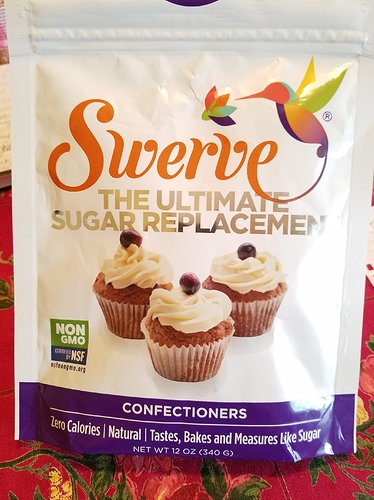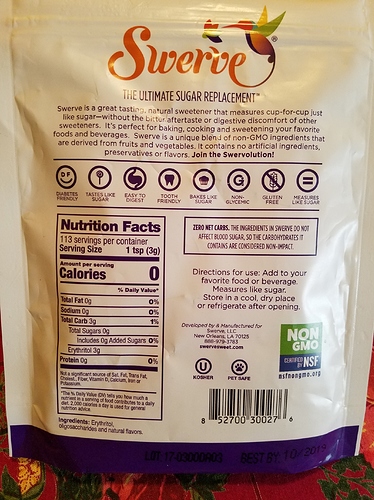VERY cool! Do you want me to check the constipation resource?
Questions for Jason Fung and Megan Ramos
In the meantime, at the risk of making you mad, would you consider googling “laxative dependence”? Just a thought…
That’s the reason I don’t take laxatives, I don’t want to become dependent!! Magnesium isn’t considered a laxative - most people are deficient in magnesium because the soil we grow food in today is much less nutrient dense than it once was. I talked to a doctor and she said you can’t really become dependent on Mag, luckily.
Good to know. I have to take a lot of mag. citrate to keep things moving along, DH breaths around it and he has to go… 
OK. I see the first problem. Someone has given you some wrong information.
The FORM of magnesium is important. Mag citrate IS a laxative. If you want a resource, WebMD says that overuse of mag citrate can cause inability to go (poop) without it. That’s the definition of “laxative dependence.” You can DEFINITELY become dependent on magnesium citrate.
Not trying to lecture you, just giving you real, factual information.
Mag citrate’s classification as a laxative is because it is not well-absorbed by the body and draws water into the bowels. This has a softening effect and usually helps you go. Other forms of magnesium, such as mag glycinate or mag malate, are much better absorbed by the body. They don’t work well as laxatives because their form of magnesium gets into your tissues, not your bowels. You can google all of this for cites and sources.
TL-DR version: Magnesium citrate does not get into body tissues very well. It does not help with magnesium deficiency from food/soil. It draws water into the bowels to help with constipation. It can cause dependency. Other forms of magnesium (like malate or glycinate) go into body tissues and can help with magnesium deficiency. They do not work so well as laxatives. Google for cites and sources.
I take a combination of citrate, malate, and glycinate. I’ll back off the citrate. Oddly, it doesn’t really help anyway. Seriously…it’s like pushing out a brick with or without the mag. Excruciating.
We should probably continue this under a new thread. Would hate to have Dr. Fung and Megan wondering, “Whiskey Tango Foxtrot???” at all this. Let me know if you start a new thread, OK?
@carl - I just listened to and read @Debmeg’s story on the Centurian podcast/thread. I will definitely try cutting out sweeteners completely and continue doing EF to see if that combo makes a difference.
I was hoping that erythritol would be okay, but maybe that’s the problem???
I have a question that might be good for Dr. Fung.
I am curious about exercise and how it is affected by Intermittent Fasting. Particularly whether exercise is better done in the fasted state vs the un-fasted state. To go a little deeper I would be curious about how endurance exercise or cardio differ from weightlifting.
If a person were to lift weights in the fasted state at six in the morning, and not break the fast until six that night, would muscle repair be hindered because of low insulin levels and the lack of protein in the system. What would be the best option for someone wanting to gain muscle while losing fat, or is that even possible?
I am also wondering about glycogen and how it is replenished when in the keto state, If carbs are kept below 25 grams, how does the liver and muscles refill with glycogen after an intense workout? Is this done by gluconeogenesis or is there another metabolic pathway responsible for this function.
I’m a huge fan of both 2keto dudes and obesity code, they have been a great help to me in getting started with this lifestyle! I appreciate all you guys do!
I think you are onto something. I have stalled out the last few months. I have about 10 lbs left to lose. The last month, my stress with work has increased (and the shit abuse I am taking) has caused my mood to dip. My diet got tighter though. Yet now I am up 3 lbs but my BG has also seen more variability (especially in the morning). I am still below 6.0 mmol but that sudden increase this month and weight gain could all be due to the stress I am experiencing.
@carl and @richard, if you’re still accepting questions for Dr. Fung and Megan, I have one:
I prefer the results I get from extended fasts (5+ days), so that’s what I do. But I’m also very concerned about the potential for refeeding syndrome (i.e., the sudden relocation of phosphorous in the body when you resume eating). I’ve been 100% keto since the last week of May 2017 and am an experienced EFer. Because of my concern about refeeding syndrome, I have always eaten a very small amount of high phosphorous food every 5 - 7 days of an extended fast, hoping to gently restore phosphorous and maybe avoid the great bodily shock of refeeding syndrome when I finally end the fast. I take in proper amounts of sea salt, potassium, and magnesium every day whether I’m fasting or not. I should also mention that I am recovering from a massive and near-fatal stroke from December 2016 (before keto), so I try to avoid any kind of major shocks to my system, and I really like the potential healing effects of extended fasting. My question is, does it help to actually eat this small amount of high phosphorous food every few days of an extended fast or does it just result in throwing me out of my fast every few days and have no effect on mitigating any potential refeeding syndrome? Thanks SO MUCH for everything that you do!
sure we plan to do a Q&A show regularly intermigled with the patient stories
Question for Dr Fung & Megan: Do you happen to know of any keto/fasting-friendly general practitioners in the downtown Toronto area who are accepting new patients?
My problem is when I decide to change things I want to do everything at once. I’ve decided I want to eventually train myself not to eat after 7pm but that’s a hard one for me! So for now I’m going to not eat after 9 p.m. and once I got that down move it to 8pm until I get to seven. I strongly believe this is going to have a noticeable positive health impact on my already stellar health.
I also want to start testing artificial sweeteners and see if they’re affecting me at all negatively. So far in my journey I’ve gotten healthy with them but I’m curious what would happen if I eliminated certain ones or possibly even did a stint of not using them at all. Do I have a question? The IDM program recommends not using artificial sweeteners. I can’t see me living that way completely though. LOL. I know I DM is open and so I think occasional use is fine just not during fasting and not daily. I totally agree with that.
I guess I don’t have a question I’m just making a general announcement. LOL.
I did stop using stevia due to a few IDM patients having a significant insulin spike with it.
Just in case, I don’t want that to be me or Kevin.
I really wish we had a meter the tested insulin levels. Wouldn’t that be the best thing ever?
I digress…
When I do use a sweetener to make a cake or mousse, I use Swerve. Swerve is made with erythritol and ogliosaccharides.
My question:
when I do occasionally use a sweetener, is Swerve (made with erythritol and ogliosaccharides) the best choice out there?
See? Give me enough time and I’ll come up with a question. LOL


